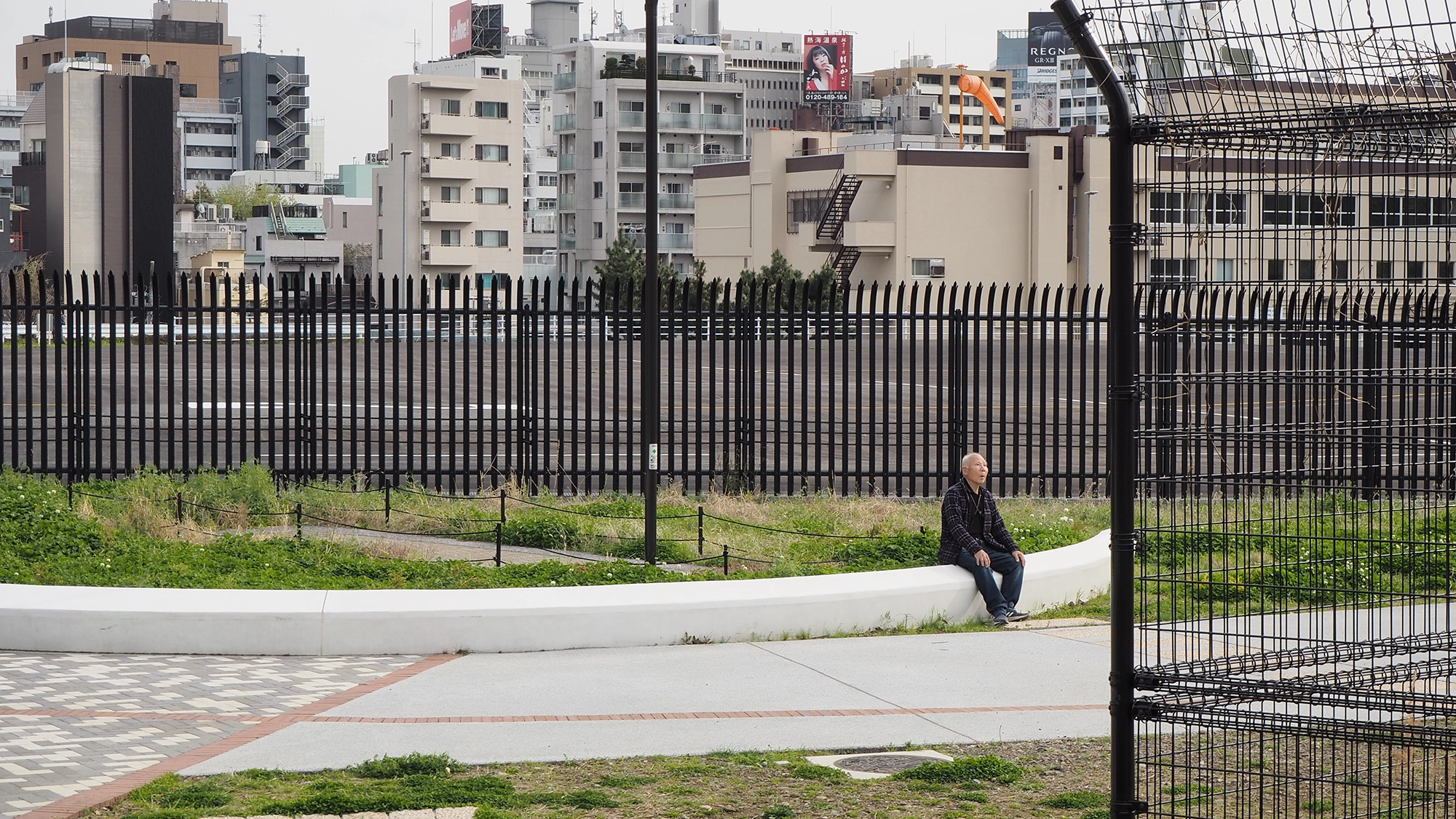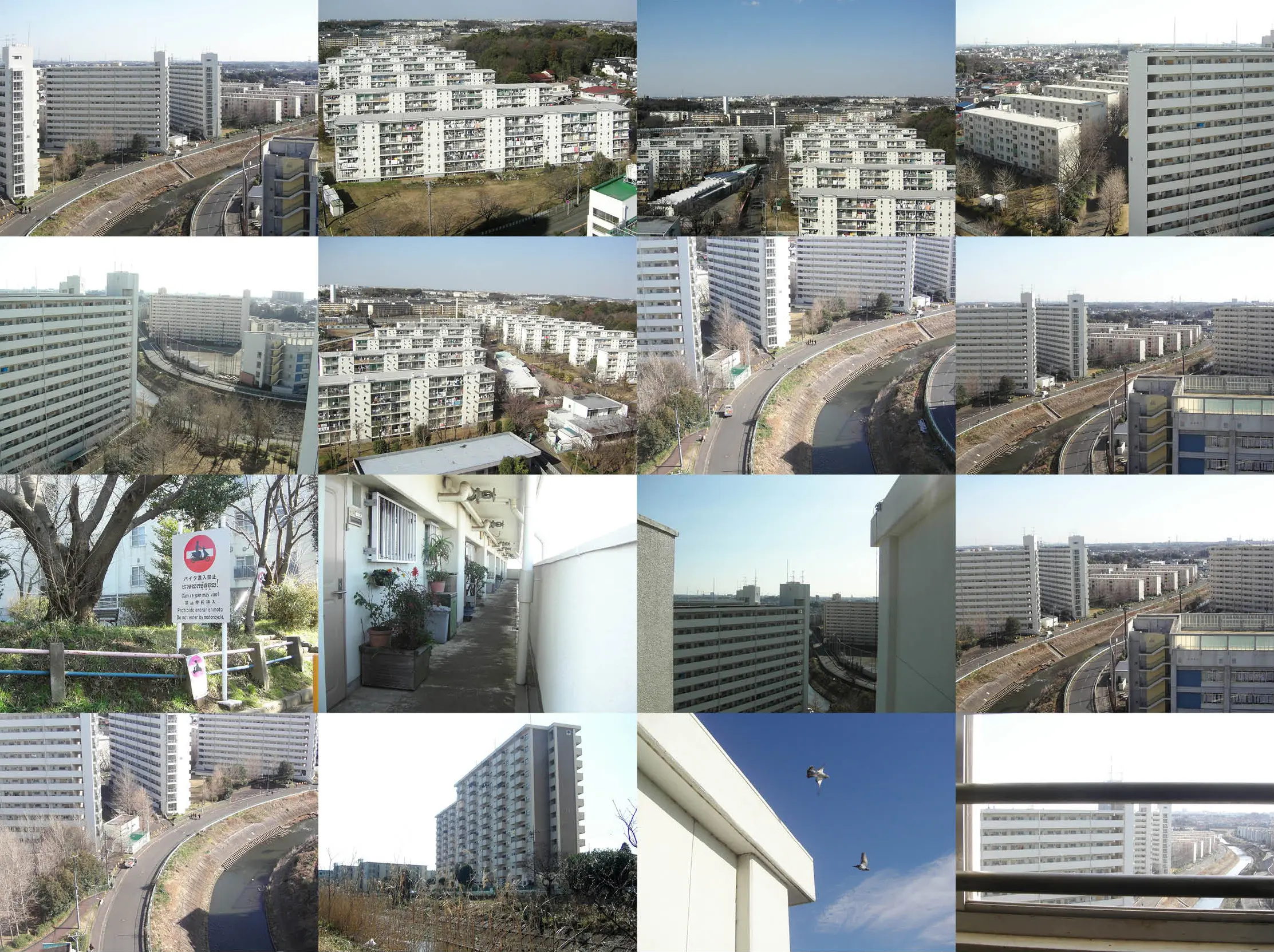
The airspace over central Japan has been under the control of the U.S. military since the end of World War II, known as “Yokota Airspace”. It extends north from the Izu Peninsula of Shizuoka Prefecture to Niigata Prefecture. Until now, commercial aircraft have been unable to enter this airspace for landings and departures at Tokyo's Haneda Airport without U.S. military approval.
The Narita International Airport was constructed approximately 60 kilometres (37 miles) from central Tokyo during the 1960s and 1970s. The Japanese government demolished farms and villages around Sanrizuka in Narita city to make way for the New Tokyo International Airport. Local farmers and student radicals protested for many years during the 1960s and 1970s, and the issue remains unresolved today. Some of the activists established themselves as farmers, living inside of the airport compound. The airport was finally opened in 1978. The local community was destroyed after a long struggle, with many villagers leaving. There were internal disputes between opposition groups of radicals and villagers during the 1980s. Today, there are still some pending court cases on land rights issues that require resolution. Three of the farms were kept running inside the airport, preventing the expansion plan from being implemented. Since its opening, the airport has been restricted to daytime traffic only due to noise pollution affecting the surrounding residential area. Narita airport is an example of a poorly executed national development strategy, and is considered a failure. The airport's original function as an international airport for Tokyo has been partially reclaimed by Tokyo Haneda Airport.
1.TO OUR GOOD AND LOYAL SUBJECTS, 2. To strive for the common prosperity and happiness of all nations as well as the security and well-being of our subjects is the solemn obligation which has been handed down by our imperial ancestors and which lies close to Our heart. Indeed, WE declared war on America and Britain out of our sincere desire to ensure Japan's self-preservation and the stabilization of East Asia, it being far from our thought either to infringe upon the sovereignty of other nations or to embark upon territorial aggrandizement. But now the war has lasted for nearly four years. Despite the best that has been done by everyone – the gallant fighting of the military and naval forces, the diligence and assiduity of our servants of the state, and the devoted service of our one hundred million people – the war situation has developed not necessarily to Japan's advantage, while the general trends of the world have all turned against her interest. Moreover, the enemy has begun to employ a new and most cruel bomb, the power of which to do damage is, indeed, incalculable, taking the toll of many innocent lives. 3. Should WE continue to fight, not only would it result in an ultimate collapse and obliteration of the Japanese nation, |
4. WE cannot but express the deepest sense of regret to our allied nations of East Asia, who have consistently cooperated with the Empire towards the emancipation of East Asia. The thought of those officers and men as well as others who have fallen in the fields of battle, those who died at their posts of duty, or those who met with untimely death and all their bereaved families, pains our heart night and day. The welfare of the wounded and the war-sufferers, and of those who have lost their homes and livelihood, are the objects of our profound solicitude. The hardships and sufferings to which our nation is to be subjected hereafter will be certainly great. WE are keenly aware of the inmost feelings of all of you, our subjects. However, it is according to the dictates of time and fate that We have resolved to pave the way for a grand peace for all the generations to come by enduring the unendurable and suffering what is insufferable. Having been able to safeguard and maintain the Kokutai, WE are always with you, our good and loyal subjects, relying upon your sincerity and integrity. Beware most strictly of any outbursts of emotion which may engender needless complications, or any fraternal contention and strife which may create confusion, lead you astray and cause you to lose the confidence of the world. Let the entire nation continue as one family from generation to generation, ever firm in its faith in the imperishability of its sacred land, and mindful of its heavy burden of responsibility, and of the long road before it. Unite your total strength, to be devoted to construction for the future. Cultivate the ways of rectitude, foster nobility of spirit, and work with resolution – so that you may enhance the innate glory of the imperial state and keep pace with the progress of the world. |
| *WE -- (朕), (imperial) I, me (similar to the royal we) |

自粛中継 / Self-Censored Live Broadcast
1988年9月、昭和天皇の吐血報道から翌年1月の崩御までの4ヶ月間、日本国内の各TV局はCM、バラエティー番組等を自粛、深夜放送では病状の推移を皇居正門前、二重橋の中継映像とともに放映した。
In the final months of 1988, the Japanese network TV made the decision to refrain from showing advertisements and entertainment programmes following the collapse of Emperor Showa Hirohito, from September until his death in January 1989. During that time, a bridge in front of the main gate of the Emperor's Palace in Tokyo was shown continuously at night, with updates on the Emperor's condition.

The public housing complex is situated on the outskirts of Tokyo, adjacent to the Atsugi U.S. Air Base. During the 1980s, the Japanese government established a detention centre for refugees from the Vietnam War and subsequent conflicts in Laos, Cambodia, and Vietnam. The public housing project subsequently became the home for these refugees, many of whom had Chinese backgrounds. Furthermore, since the 1980s, Japanese orphans from China who were left behind after the Second World War have been returning to Japan. Many have relocated to Icho Danchi in search of a Chinese-speaking community. Further, many immigrants, refugees, and migrant workers from different countries have been moving in and out of the area, creating different language-speaking communities.
dated.pdf
STATEMENTS / TAKUJI KOGO + YOUNG HAE CHANG HEAVY INDUSTRIES
STATEMENTS ( UKRAINIAN / JAPANESE )/ TAKUJI KOGO + YOUNG HAE CHANG HEAVY INDUSTRIES
NUNOTANI / TAKUJI KOGO + MIKE BODE
EISENMAN ARCHITECTS THE ZENIDAKA CORPORATIONS + DESIGN COMPANY OF NUNOTANI COMPANY, BUILT IN 1991 EDOGAWA TOKYO JAPAN Built as the main office building of the design company NUNOTANI corporation's Tokyo branch at the total cost of 2500,000,000 yen in 1991. However the building's function soon turned into a warehouse. The NUNOTANI corporation went bankrupt in 2000 largely due to the investments the company had made at the end of the bubble economy in Japan. The administration of property Osaka district court has had the building and the site up for sale since 2000. A company " Life support" finally bought the dilapidated building at an auction in 2003 for 400,000,000 yen and subsequently converted the building into the old-age peoples home YURARI EDOGAWA GREEN PARK. The building was renovated by the Architect Takao Kase.
PDF 12.3mb